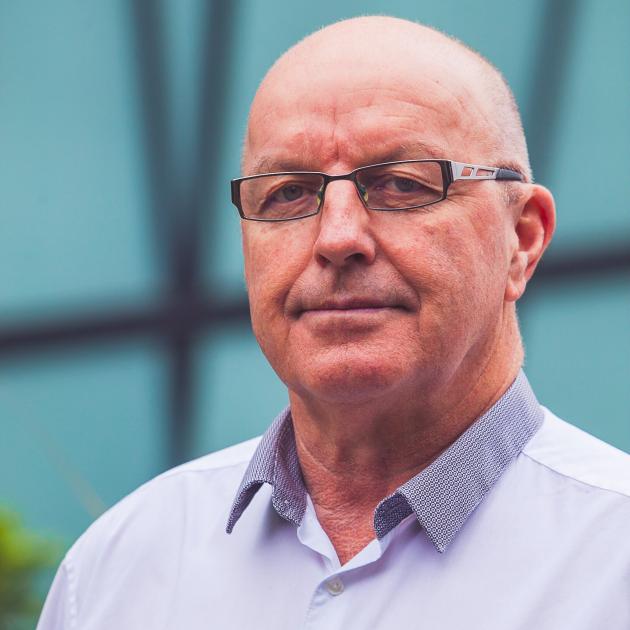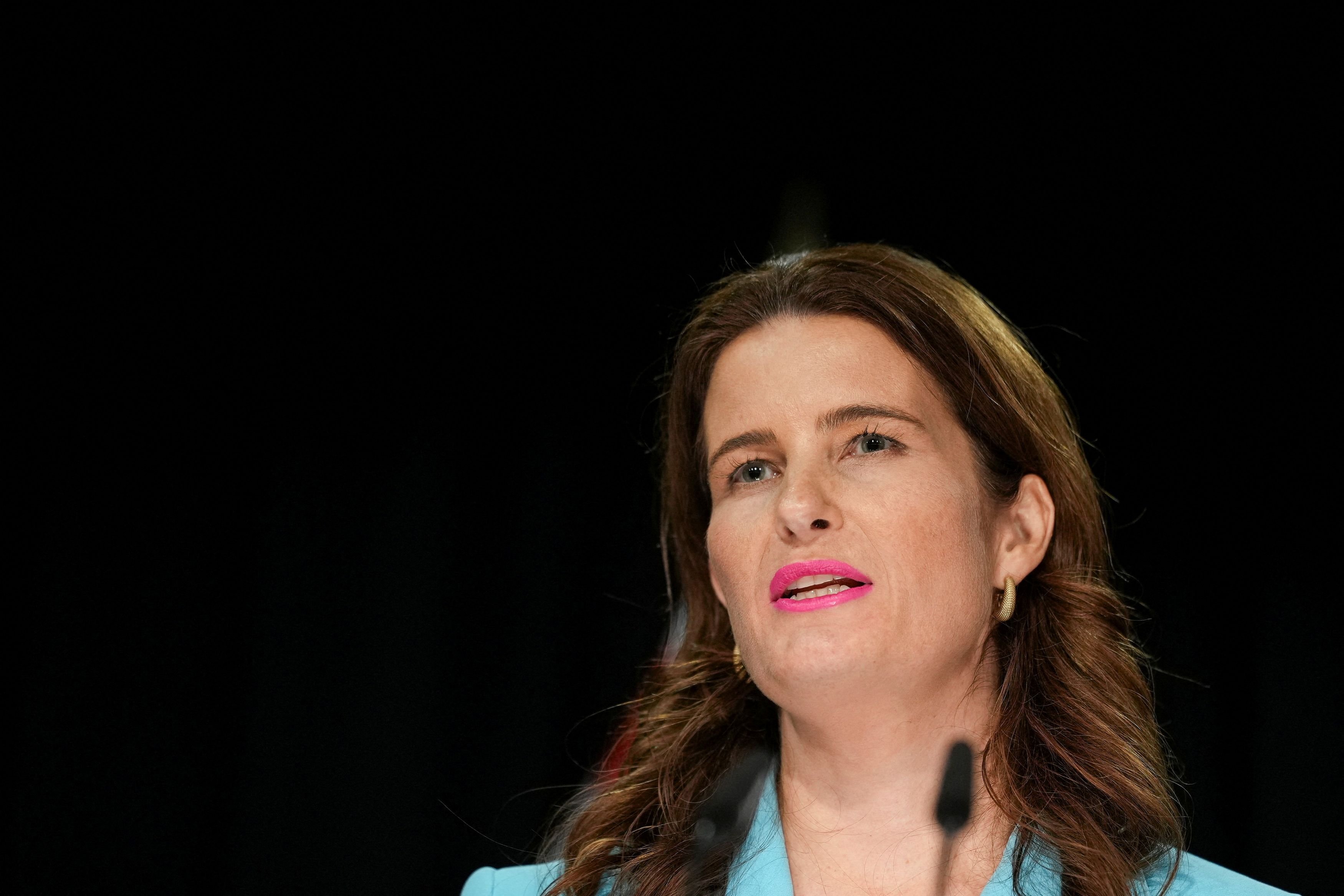
Bullies are enforcing a code of silence in our workplaces, according to those pushing back. Paul Gorman looks at the use of non-disclosure agreements to cover their tracks.
It’s another of New Zealand’s dirty secrets.
Despite workplace bullying damaging the lives and mental health of many thousands of New Zealanders every year, there appears to be no serious resolve to do anything about it or treat those on the receiving end fairly and justly.
Meanwhile, the cost to the country is measured in billions of dollars annually.
A KPMG report for the Human Rights Commission last year "conservatively estimates" the cost of bullying and harassment between June 2021 and June 2022 was $1.35 billion. The human cost, in terms of deteriorating mental health, post-traumatic stress disorder, broken families and suicide, is even higher.
An investigation by The Weekend Mix reveals few politicians understand the extent of the problem or seem to want to get to grips with it.
Workplace Relations and Safety Minister Brooke van Velden said in a statement Employment New Zealand (part of the Ministry of Business, Innovation and Employment) and its mediation and resolution services were helping promote a "healthy and respectful workplace culture".
WorkSafe NZ could also help employers assess the risk of bullying in their organisations, the statement said.
But anti-bullying advocate and former PSA union convener Allan Halse, whose company CultureShift NZ supports whistleblowers and the bullied, says in the 10 years since the Health and Safety in Work Act was introduced there have been no prosecutions of employers for causing psychological harm to employees.
He says WorkSafe NZ claims the "onus of proof is too hard" to take a prosecution, even where there is clear evidence.

New Zealand has the second-worst workplace-bullying record in the developed world after Austria. Lawyers here are on a "gravy train" making millions of dollars out of defending both ambushed employees and badly behaved employers over unjustified disadvantage and dismissal cases in the workplace, Halse says.
About 70% of workplace bullying is perpetrated by employers or managers, with peer-to-peer bullying accounting for about 25% of cases. The remaining 5% involves employees bullying their managers.
Halse believes New Zealand’s bullying culture is a key factor in the mass exodus, in record numbers, of our best and brightest workers to Australia and further abroad. It is giving the country a bad reputation overseas, putting off skilled people from coming here, and allows migrant workers to be treated badly.
Like others, he believes Rogernomics followed by the Jim Bolger National government’s 1991 Employment Contracts Act were the catalyst that fundamentally changed New Zealand’s workplace culture for the worse.
The changes shifted management philosophy to prioritise being "ruthless" and seeing workers as more dispensable, he says.
Despite van Velden’s statement, all indications are that the current environment allows organisations to keep hiding bad employer behaviour by compelling some employees to sign, without previous warning, confidential payout agreements at so-called "mediations".
So-called, because some, including Prof Mark Henaghan, of the University of Auckland’s Law School, consider them "more of an ambush", which violates principles of natural justice.
These secretive "non-disclosure" agreements are usedby many New Zealand organisations across the public and private sectors.
Their effect is to heavily restrict what an outgoing staff member, who may have experienced distressing bullying and abuse from their employer, can discuss with anyone, including their doctors or mental-health counsellors.
"I don’t think that’s fair in any context," Henaghan says.
"In most other contexts it would be called duress.
"Normally, a litmus test of fairness is that you have a fair hearing, you have time to make your decisions. When you don’t expect this to happen — so first of all you’re not prepared for it, [and] secondly, you’re given a carte-blanche ‘take it or you’re gone’ — to me that’s unfair. And that’s without even going into all the machinations.
"There may be a case where obviously people do want to settle and leave, but even if the outcome isn’t so bad, it’s the way they’re treated that makes them feel bloody awful."

She has drafted a private member’s Bill, which she is still waiting to be drawn from the biscuit tin.
White once had a number of separate cases involving "the same bad actor, a manager who was bullying staff, one after another".
"The manager accused each employee of failing to perform and bullying the manager. Each time a settlement exiting the staff member was agreed and a confidentiality agreement was entered into. I was the lawyer for a number of them over two years.
"Eventually, at worker number nine, I was able to press my point with the employer, that perhaps their judgement might have been clouded.
"My point is this has happened to many people. A system reliant on compromise and shrouded in secrecy often favours the powerful and it is the weaker party who settles or walks away.
"This kind of settlement has nothing to do with justice," she says.
Halse has gone to considerable lengths to tell the government how serious the situation is and how much workplace bullying is costing it.
CultureShift NZ has supported about 1300 workplace bullying victims and at present has at least 200 clients across the country, with at least five new cases added each week.
However, he says he has hit a brick wall in terms of any government engagement.
On April 24, Halse wrote to van Velden about the "lack of neutrality of MBIE Mediation Services" and concerns many mediations were being done by Zoom, as they were during the height of the Covid-19 pandemic.
He told her a survey of almost 1000 of more than 1200 CultureShift NZ clients since it was established in March 2014 showed 87% were suffering from anxiety, depression or had post-traumatic stress disorder when they engaged its services. Half had experienced suicidal ideation and 9%, more than 100, had attempted suicide.
"MBIE Mediation Services claims to be neutral, but this year have demonstrated that they have a strong employer bias, by taking a dictatorial approach (reverting to Covid-19 days) to expediting mediations.
"In-person mediations are always the best preference for bullied workers as they [and their representative] get to communicate directly with the employer who allowed them to be abused in their workplaces.

Halse says he has never received a reply from van Velden.
On June 23, Halse wrote to Finance Minister Nicola Willis pointing out the many millions of dollars government agencies were "wasting" on external lawyers to defend workplace bullying, unjustified disadvantage and unjustified dismissal cases "through deny, delay and discredit strategies".
He listed 11 cases with legal costs, only three of which had been concluded at that time — $914,433 over eight years at the Department of Internal Affairs, $803,735 over five years at WorkSafe NZ and $703,000 over seven years at the Bay of Plenty District Health Board.
"Government agencies are content to take a chance on paying external lawyers to defend claims as they are able to hide these costs without disclosing the cost per individual case to their ministers.
"These figures do not include the hundreds of thousands of dollars in compensation payments awarded to employees who were successful in their claims."
He also warned Willis about the failure to address the "bullying culture within the public sector".
"A major contributor is also the behaviour of chief executives of government agencies who would rather use vast funds to pay external lawyers instead of using the funds to fairly compensate employees for bullying behaviour carried out by its managers. This appears to be due to lawyers’ fees being easily ‘justified’ as the cost of business.
"Another major contributor to the extravagant cost is the failure over many years for government agencies to address the widespread culture of bullying across society, with this being particularly prevalent in the government sector."
Willis initially agreed to a meeting with Halse, he says.
"She changed her mind two days later when I provided the pre-meeting information to her. She responded saying she had referred the letter to Brooke van Velden. Minister van Velden hasn’t replied."
The Weekend Mix approached Willis’ office to ask why she refused to meet on the issue. Her staff forwarded the email to Public Service Minister Judith Collins, who replied saying Halse had not written to her as minister or requested a meeting.
"His correspondence was addressed to another minister and subsequently referred to me, and I responded to him in March this year," Collins said.
Halse says that letter was about another matter, nothing to do with what he wrote to van Velden and Willis about.
In Collins’ response to The Weekend Mix, she said she was also concerned about bullying and harassment and all public service leaders had to take a zero-tolerance approach.
"The March 2025 public service census found 12.1% of public servants reported experiencing bullying in the previous 12 months. Each agency has an action plan to respond to its census results, and the public service commissioner will be holding chief executives to account for these."

Several attempts to talk about the issue with Labour justice spokesman Duncan Webb and workplace relations and safety spokeswoman Jan Tinetti were unsuccessful.
In a statement, Tinetti said she found the growing use of non-disclosure agreements in employment mediations concerning, "especially when workers feel pressured to sign away their rights just to move on with their lives".
"Workers deserve fair treatment and shouldn’t be forced to give up their voice."
In her statement, van Velden said bullying and harassment were misconduct that had to be dealt with properly.
"Records of settlement agreements could be found invalid by a court if there was a threat or unfair pressure involved, and if that pressure led someone to sign an agreement unwillingly.
"Factors that may help to make that determination are whether the employee received independent advice before signing, and whether they confirmed to a mediator that they understood the terms of the agreement and were signing it voluntarily.
"If any person is presented with a record of settlement and is unsure about the content or effect of it, they may wish to seek legal advice before signing," van Velden said.
MBIE director of dispute resolution Pele Walker stands by the robustness of its mediation process, saying if its mediators identify duress, undue influence or inappropriate conduct they will end the mediation.
"If a party feels pressured, they can leave at any time."
That was not what Kate* (whose story is told on this page) experienced.
"The MBIE mediator was ashen-faced when she found out what they were doing — but she still signed it off, telling me I’d be better off out of there," Kate says.
As a former union convener, Halse says unions are unable to make much difference.
"Only 18% of all workers now belong to a union, so 82% have no representation at all. What unions are left are weak.
"The most unionised sectors — and this is really ironic — are teachers and nurses. And the bullying is worst in education and second worst in health."
Unions have conducted surveys on the problem, revealing high levels of workplace bullying, but have failed to take real action against it, promising support but abandoning members when cases become costly, he says.
Henaghan agrees unions’ ability to support members is not what it once was.
The so-called "mediations" with their take-it-or-leave-it offers of compensation gaslight and effectively ensnare employees, he says.
"People are so shocked by it they just come away and almost feel relieved and think, ‘oh at least I got something’. And then when they think about it for a while they go, ‘well, that was awful’.
"It’s all manufactured to say: ‘You’re in a really bad position, but we’re going to be quite kind to you and give you some money for you to leave. But we could just knock you over now and you get nothing.’ It’s the way it’s framed.

There’s an absence of natural justice.
"These can be well-behaved employees who just fell on the wrong side of a particularly nasty boss," Henaghan says.
Asked whether it has concerns about the fairness of the practice, a spokesperson for the New Zealand Law Society said in a statement that mediation was a "fundamental part of New Zealand’s employment law framework" and a "large number" of employment problems were resolved through it.
"One of the objectives of the Employment Relations Act 2000 — the main statute governing employment relationships in New Zealand — is to promote mediation as ‘the primary problem-solving mechanism’ in most circumstances."
Confidentiality and non-disparagement provisions in a settlement typically applied to employer and employee and could be to the employee’s benefit. MBIE mediations had independent mediators, and settlements could be declared null and void if any duress was used to get an employee’s signature, the society said.
MBIE monitors WorkSafe NZ. A ministry spokesperson said in a statement that monitoring did not focus on WorkSafe’s bullying prevention efforts.
However, MBIE was supporting van Velden to reform health and safety laws, "reducing compliance costs, increasing business certainty and keeping workers safe".
"The government has agreed to a range of changes that will significantly refocus WorkSafe from an enforcement agency to one that engages early to support businesses and individuals to manage their critical risks."
No specific new work was planned on workplace bullying, the spokesperson said.
In another statement, a WorkSafe NZ spokesperson said managing psychosocial risks, such as bullying and harassment, formed "part of the primary duty of care held by all businesses and organisations towards workers".
WorkSafe’s role was to ensure health and safety efforts in an organisation were adequate to deal with bullying. It could only prosecute under the Health and Safety in Work Act if "both the evidential sufficiency and public interest tests set out in the Solicitor-General’s prosecution guidelines" were met.

"Our notices have addressed ineffective systems for identifying, assessing, controlling and reviewing psychosocial hazards such as bullying, lone working, and exposure to distressing incidents. To date, all such notices have been complied with."
White’s Bill proposes anonymising the names of those involved in Employment Relations Authority cases, unless there is an intention to punish through a penalty action or a finding of a breach of good faith.
"This government refuses to believe there is a power imbalance between employees and employers at all. It is also sweeping away health and safety checks and balances.
"No-one should be punished for taking a case in good faith, win or lose. No-one should be blackmailed into a settlement because if they don’t settle their name will be published. Let’s at least start from a place of sunlight."
White says a cooling-down period before a settlement is agreed would ensure natural justice for an employee and the opportunity to get professional advice, avoiding the situation where someone is railroaded into signing something they don’t understand.
"I’ve seen a handful of situations where I have thought the behaviour has been unethical in terms of the pressure being put on the mediator by the employer. You can get that style of advocacy, an abrasive ‘we’re not going to abide by any of the rules’ approach.
"And I have seen mediators bow to that pressure, rather than insist on adherence to rules, from the best of motivations — the mediator’s concern that it is unrealistic for the employee to endure such an attitude from their employer or former employer."
Halse remains highly critical of WorkSafe and Minister van Velden.
"In the 12 years that WorkSafe NZ have existed, they have never addressed psychological harm, caused by workplace bullying and other reasons, even though the Health and Safety at Work Act added psychological harm to the definition of harm.
"It’s the wild west in employment now as the minister has given licence to employers to do whatever they like, regardless of health and safety legislation."












